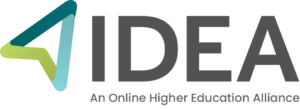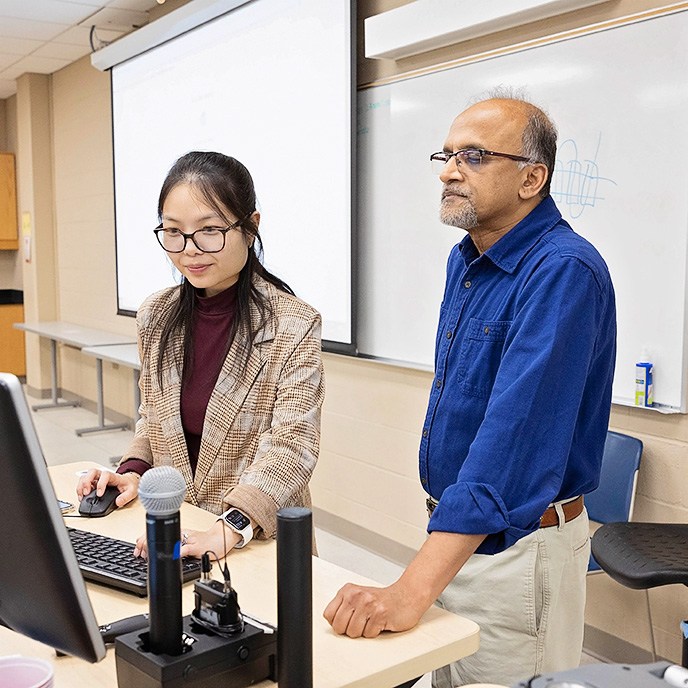Early Childcare Education and Programming – Bachelor’s

Early Childcare Education and Programming
A positive force in the making!
Before first grade, a child may spend more than 10,000 hours in childcare. Children in high-quality early education programs are more likely to enter college or the highly skilled workforce. Quality childcare for children today creates a viable workforce for the future and a strong American economy in the long run. Here’s your chance to make a difference.
Summary
The Early Childcare Education and Programming (ECP) online bachelor’s degree takes you to the next level. Learn to approach your classroom with the eyes of a scientist. The capstone project will teach you to investigate and solve challenges in your room using data allowing you to better serve your students.
Completing the program is easier than ever! Recent changes to the practicum allow you to include experience in your current classroom while upholding national guidelines.
As a degree completion program, you can bring in up to 30 credits. Find out how your credits will transfer here.
It is important to note the ECP degree is not a path for teacher licensure. If you want to become a certified teacher, consider our Early Childcare Education major.
Don’t miss out! The State of Iowa T.E.A.C.H and WAGE$ programs might pay a considerable portion of your tuition AND increase your pay after you’ve graduated. More information below.
Collaborative Advantage of IDEA

Achieve your personal and professional goals through convenient, flexible, high-quality coursework you can complete anytime, anywhere. As a student in Iowa State University’s Early Childcare Education and Programming Bachelor’s program, you will learn from expert faculty who bring real-life experience to the coursework and are committed to helping you transition your learning beyond the online classroom into your career.
The Early Childcare Education and Programming Bachelor’s program is part of a consortium of universities connected through IDEA. While Iowa State University is your home university where you will apply, register for courses and receive your diploma, you’ll benefit from the diverse perspectives and unique strengths brought by classmates and expert faculty at partner universities.
Learn more about the IDEA program at Iowa State.
Admission Requirements
Once you have met the following requirements, you are eligible to begin taking the ECP core courses. But if you haven’t met these requirements, contact an adviser to discuss your path into the ECP program.
- Completion of a minimum of 30 credits
- Minimum GPA of 2.5
- Successfully pass a criminal background check
- Completion of Lifespan and Development course (equivalent to HDFS 102 at Iowa State)
Credits
The ECP degree requires a total of 120 credits. This consists of 51 ECP core curriculum credits, 40-41 general education credits, and 28-29 elective credits.
The Iowa State University Catalog outlines the degree requirements.
Tuition
As a member of IDEA, all students pay universal tuition. For more information, visit the IDEA website.

IDEA Contacts
Gilda Figueroa
Campus Coordinator
2624 Howe Hall
515-294-7471
gpideainfo@iastate.edu
David Welshhons
Graduate Student Services Specialist
2624 Howe Hall
515-294-8789
gpideainfo@iastate.edu
Dani MacDougall
Academic Adviser
515-294-8618
djmac@iastate.edu
Celia Shedd
Assistant Teaching Professor
515-294-8877
cpshedd@iastate.edu
Application Process
You must complete the following steps before you are able to take classes associated with the ECP degree.
- Work with our Iowa State Admissions Office to apply to be admitted to Iowa State. Follow these instructions to fill out the online application.
- You will be expected to have all of your transcripts sent to Iowa State. They should only be sent to the address below and no one else.
Office of Admissions
100 Enrollment Services Center
2433 Union Drive Ames, IA 50011-2042
etranscript@iastate.edu - You will apply for the ECP major. If admitted, you are considered Pre-ECP. You will then need to follow the instructions sent to you in order to accept your offer of admission to Iowa State University which includes paying the $330 acceptance fee. Part of this fee is a deposit for on-campus housing. However, for students who never contract for on-campus housing, the housing deposit portion of the $330 acceptance fee would be refunded on your first university bill.
- Once you’ve paid your admission fee, you will need to complete two orientations. One is the University’s orientation, and the second is the College’s orientation. After you complete both, you will be instructed to contact the College’s Student Services office to finalize your orientation. Student Services will then confirm you are done and assign you an adviser.
- Contact your adviser to help you understand what classes transferred if you are a transfer student, go over requirements and prerequisites, and to make a plan.
- You will get a Registration Access Number (RAN) from your adviser if you need to register for a general education course or an elective.
- If you are eligible to take ECP courses, you will work with your academic advisor and IDEA coordinators (gpideainfo@iastate.edu) to get registered for any ECP courses.
Students are considered pre-ECP until the following requirements are fulfilled:
- Completion of a minimum of 30 credits (either at Iowa State or transferred in from another college or university)
- Minimum GPA of 2.50
- Successfully pass a criminal background check
- Completion of Lifespan and Development (HDFS 102 at Iowa State)
After graduation, I was hired as the preschool teacher and onsite supervisor/team leader at the center where I did my practicum. After a year and a half at that center, I became the assistant director at KindeCare. I love my new position and balancing time in the classroom with administrative work.
Sunshine Huisman, ’18 early childcare education and programming
T.E.A.C.H. and WAGE$
-
3.45
average GPA
-
17%
average salary increase
-
99%
would recommend the program to their peers
The State of Iowa T.E.A.C.H. Early Childhood® Program awards scholarships to early education professionals so people like you can continue their education.
Work in a low-income district? You may be eligible for additional funding.
Counseling Support Scholarship recipients receive individualized professional development planning, navigating the college system, and addressing challenges to success.
The WAGE$ program offers financial stipends as your education increases.
For more information about these programs, visit the Iowa Association of the Education of Young Children.





